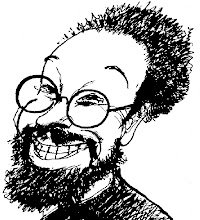Finished Lee's Virginia Woolf. Years ago, when I was single and childless, I would have spread out the reading as I turned to The Waves, To the Lighthouse, and other novels and essays as Lee discussed them. (It was how, years ago, I read a biography of F. Scott Fitzgerald, and why I own a copy of The Apprentice Fiction of F. Scott Fitzgerald.)
I may, or may not explore Woolf's body of work--so many books; so little time!--but I'd heartily recommend her A Writer's Diary. Cobbled together by her husband after her death (Victoria Glendinning has an interesting discussion of the process in her Leonard Woolf), it's like Maxwell Perkins' Editor to Author--essential reading for anyone writing fiction.
I don't mean either will tell you how to write a novel or short story. What you can learn, though, is that next to talent sheer perseverance is what it's really all about for any writer.
I'm getting over a cold (when you have an 8-year-old, sooner or later you get everything that blows through his classroom), so I've been reading more than usual. Finished Scott Smith's The Ruins--which, come to think of it--may have been what made me sick. (Stephen King is a great guy, but I should know by now not to read anything he recommends.) Still, it won't prevent me from looking for Smith's A Simple Plan, when I go to the library today.
Also read Updike's The Widows of Eastwick, though I never read its predecessor. I should probably look for it, but I'm not sure I liked The Widows... enough. Updike, of course, died last month and, while I hadn't read much by him till I picked up The Widows..., from time to time I'd ask myself why.
Scott Timberg says it better than I could in this piece from the LA Times.
Before The Widows..., the last Updike I'd read was the collection of essays and reviews, Hugging the Shore. Before that, I'd ventured into the omnibus edition of the Rabbit novels that's been on my shelves for years. I never got further then the first few pages, mostly because I found myself focusing on how they were written instead of what was written.
Then too, I was writing--as I usually am--and Updike's style was powerful, if not entirely to my taste, and the last thing I wanted to do was re-read my work a few weeks later and realize I was going to have to throw out pages of a not-very-good imitation of Updike.
Also read The Magnificent Ambersons, which is probably most remembered now not as the novel by Booth Tarkington, but as a failed Orson Welles film. I'm disappointed to find the movie not available on DVD from Netflix.
I mostly remember Tarkington as author of a series of novels about a boy named Penrod, who was a kind of American William. Penrod, though, had a black friend named Sam, and I cringe to think how Sam was depicted. The blacks in Ambersons, all peripheral figures, are similarly referred to as darkies, speak in dialect, and in one instance, go around singing about women and gin.
Ambersons was published in 1918, so it's a reflection of its time in other ways too. Tarkington piles description on description, and his characters go on and on and on, long after you've gotten the point. In that sense, it's of that time before radio, movies, and television when reading was far more central to our culture.
Friday, February 20, 2009
Subscribe to:
Post Comments (Atom)

No comments:
Post a Comment